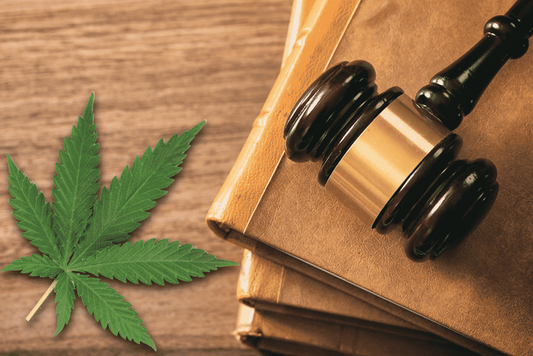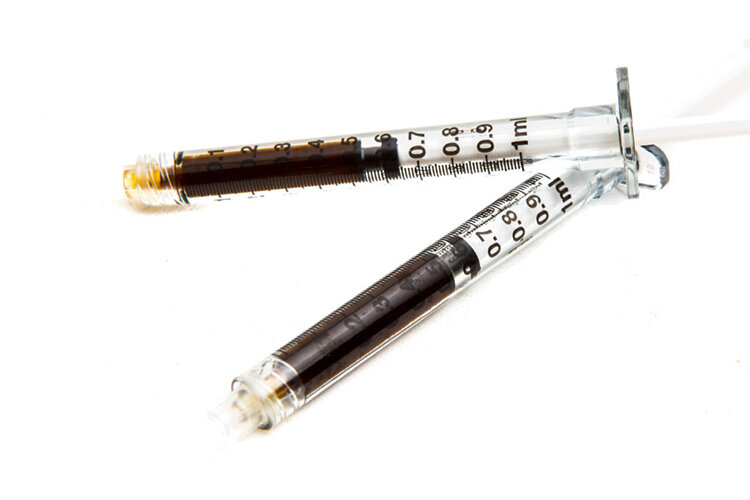
Hemp oil can be extracted from the hemp plants. This oil is naturally produced from the hemp seed and has a nutty flavor. Hemp oil comes in a variety of colors, including clear and dark green. The more dark the color, the better the flavor. However, hemp oil should not be confused with hash oil, which contains tetrahydrocannabinol.
Healthy omega-fatty acids
High levels of omega-3 fatty acids are found in hemp seed oil. It is also an excellent source of vitamin E and minerals, such as phosphorus, sodium, and magnesium. It's also rich in iron and zinc. Hemp seeds contain essential fatty acid that our bodies are unable to produce.
Hemp seed oil, the easiest form for hemp omega 3, is best. You can make smoothies from hemp seed oil. It contains a 3:1 ratio of omega 3 and omega 6 fatty acids, making it a healthy addition to your diet.
High levels of polyunsaturated fat acids in hemp oil help lower bad cholesterol. It has the ideal ratio between omega-3 and omega-6 fat acids. This is vital for optimal health. Healthy omega fatty acids from hemp oil may also help prevent heart disease and inflammation.
Hemp oil has a similar omega content to fish oil. Hemp seed oil is a great choice because it contains less saturated fats and more omega-3s. Hemp oil is also rich in antioxidants that help prevent free radicals from aging and promote youthfulness. Hemp oil is also a good choice for the environment. It helps in soil regeneration and reduces greenhouse gas emissions.
Additionally, hemp seed oil contains omega-3 essential fatty acids. This helps to lower blood pressure. It has anti-inflammatory, hydrating and other properties. Hemp seed oil is also a good choice for those with eczema and atopic dermatitis. It protects the skin from infections and strengthens it. It also reduces the appearance of wrinkles and improves the skin's elasticity.
Potent antioxidants
Hemp oil is rich in essential fatty acid, including omega-3 and omega-6. Free radicals are prevented by high levels of unsaturated oils. These compounds also have anti-inflammatory and immunoregulatory activities. They can also reduce oxidative stresses.
Hemp oil is also beneficial to skin. Hemp oil has a healthy ratio of omega-3 and omega-6 fatty acids. This helps to moisturize the skin and reduce inflammation. Linoleic acid is also present, which increases the quality of skin and decreases the chance of developing acne. It is also high in minerals, including potassium, iron zinc, and magnesium.
Several studies have explored the effects of hemp seed oil on various oxidative stress markers in a mouse model. In one study, hemp oil was found to have no effect on malondialdehyde levels at concentrations between 12.5-62 uL/mL. Higher amounts (125 mg/mL) of hemp oil led to an increase in malondialdehyde. Hemp seed oil has been shown to lower oxidative stress levels at the cellular level. These findings indicate that hemp-seed oil may be an effective therapy for certain diseases caused oxygen reactive compounds.

Hemp seed oil has been shown to reduce the amount of H2O2, according to studies. Hemp seed oil decreased catalase activity in Drosophila larvae. These results indicate that hemp oil is a potent antioxidant. Additionally, hemp seed oil has the ability to reverse copper-induced toxicity. Furthermore, hemp seed oil is an excellent source of polyunsaturated fatty acids.
Triacylglycerol, a fraction of hemp seed oils, contains 0.47 and 1.84 linoleic acids. The remainder of the constituents are sterols and free fatty acids. Two tocopherols are also present.
Antioxidants play a crucial role in protecting cells from damage caused by free radicals. They prevent free radicals from damaging cells by binding with them. This stops the vicious cycle from continuing. Antioxidants also strengthen the body’s natural antioxidant defenses.
Potentially weight loss aid
Hemp oil could be an aid in weight loss. It contains the essential fatty acids omega-3 and omega-6, in a 3:1 ratio, and b-sitosterols, which are believed to improve heart health. It is possible to include hemp seed oils in your daily life if you have a healthy diet.
CBD has been associated with weight loss and decreased appetite. Based on animal studies, CBD has been shown to decrease the amount of food consumed by rats. This was due to CBD's ability to reduce hunger and total food intake. Although it is expensive, CBD does have other health benefits, and its consumption does not produce a high enough level of THC to cause positive drug test results.
The GLA in hemp seed oil has also been linked to improved health. The oil contains fatty acid that aids the body in synthesizing hormones. They are absorbed into the bloodstream and play an important role in many body processes. Hemp seed oil might support your immune system.
Legality in U.S.
The legality and safety of hemp oil in the United States is a topic that has been debated in the past. It is legal for some, but it is also safe for others. The answer to this question will depend on where you live. In most states hemp is legal. However, in Texas, there is a controversy surrounding the amount of Delta-8 present in the hemp plant. It is currently illegal to ingest more than 0.3% of Delta-8 in hemp.
Fortunately, some states have jumped ahead of the federal government and legalized hemp oil for medicinal purposes. You can use it in Alabama for many conditions. Minnesota residents can purchase hemp-based CBD oil from the internet without the need for a doctor's prescription. There is also a medical marijuana program in the state. In Missouri, you can also use hemp-based CBD oil. The law states that CBD oil products must contain 0.3 percent or less THC and should be diluted to five percent or less. If you wish to use the hemp extract beyond its legal limit, you will need to obtain a registration card.

But the legality and use of hemp oil was once a matter of controversy in the United States. In the early 2000s, the DEA (Drug Enforcement Agency) began questioning the legality of hemp oil. The DEA declared THC-containing synthetic THC products illegal. However, natural THC from marijuana is not illegal. However, the definition of marijuana was changed recently. This is one loophole in the legality to hemp oil.
In North Carolina, the state Department of Health and Human Services regulates the hemp extract. It must contain less THC than 0.9 percent and CBD at least five percent. It must not contain any psychoactive substances. However, the state still allows the use and possession of hemp-derived CBD oils for medical purposes.
CBD oil isn't legal in all states. While CBD oil can be used as a form or marijuana, it isn't psychoactive and won't make you "high." Although the federal government has not approved hemp products for legalization, the states are the ones who will decide if these products can be legalized.
FAQ
Which CBD products are most popular?
CBD products are becoming increasingly popular. These products are being used to treat everything, from anxiety to pain relief. The market is growing rapidly and is very large.
But what are people buying CBD oil for? And how does this affect you as a brand owner?
Statista reports that CBD products have relaxing properties. They are also purchased for their antiinflammatory properties.
This means that if your product has both CBD and THC, then it can be sold for both recreational and medicinal purposes.
But what about brands who are focused on one purpose only? It won't be able to compete if it sells CBD for pain relief.
Also, if a brand is focused on CBD for medical reasons, it will have large customers.
If a brand wishes to reach recreational users, they must create a unique selling point (USP). A USP can be described as a unique selling proposition (USP) that is unique to a brand.
For example, some brands offer free shipping, while others offer discounts for bulk orders.
Are CBD companies a good investment?
The answer depends on the question you are asking. They are great investments if you are looking to make money. However, if you are just looking to help others, I would say no. There are many other options available without spending $20k.
How can CBD products successfully be marketed by companies in compliance with regulations?
The FDA doesn't regulate hemp as an agricultural commodity. The Controlled Substances Act regulates other cannabis derivatives (e.g. pot). CBD has yet to be subject to specific regulations.
CBD is legal in 29 states. However it is still illegal under federal law. This creates uncertainty for businesses looking to sell CBD products.
The FDA also has guidelines for how CBD products should be advertised. For example, they must clearly disclose any product's THC content. Companies cannot claim CBD is effective in treating certain medical conditions without supporting evidence.
Further, the FDA requires that manufacturers provide information on manufacturing practices and quality controls. To demonstrate safety and efficacy, the FDA requires companies to perform clinical trials.
Companies should consider these factors when developing their own marketing strategies.
Statistics
- The use of these products is likely to become even more widespread if the World Health Organization's recommendation that CBD no longer is scheduled in the international drug control conventions is adopted by the United Nations member states [201]. (ncbi.nlm.nih.gov)
- While the primary injury may not be treatable, interventions that attenuate secondary sequelae are likely to be of benefit [203].Only one study (ncbi.nlm.nih.gov)
- however, one study also found that these effects were virtually abolished when the original media (a nutrient broth agar) was replaced with one containing 5% blood (increasing the minimum concentration to ~160 μM CBD) [179]. (ncbi.nlm.nih.gov)
- HR −16 mmHg; 95% CI −26, −6; I2 = 92%) (ncbi.nlm.nih.gov)
- As a substance that was federally illegal before the passage of the 2018 Farm Bill, hemp-derived cannabinoids with no more than 0.3% THC still face a regulatory grey area. (forbes.com)
External Links
How To
What are the common issues in the CBD industry?
The market for CBD is growing at an astonishing rate. But, businesses who want to enter this market still face numerous challenges. These include low consumer awareness, high entry costs, limited capital access, regulatory uncertainty, and lack of consumer awareness.
Many people are not aware of what CBD is, or how it functions. This means they are not able to make informed choices about whether or no to purchase CBD products.
As a result, most CBD companies rely heavily on word-of-mouth marketing. This is expensive because it requires paying for advertising and hiring staff to promote their brand.
Another problem for new entrants to CBD is the high price of production. High prices are a major problem for CBD products because of the high cost of raw materials. CBD oil can only then be produced if the hemp has been grown in a specific environment.
Growing enough hemp to make CBD oil takes around $1,000 per acre. As a result, many small farmers cannot afford to start.
Access to capital is another challenge for new entrants in the CBD market. Due to the stigma surrounding the industry, banks discourage many people who wish to start businesses.
There is also regulatory uncertainty around the sale of CBD products. There are currently not clear guidelines as to how CBD products should marketing.
Despite some states having passed laws restricting the sale CBD products, this is not yet a national policy.
So far, only two states - Maine and Nevada - have legalized recreational marijuana.
Massachusetts and Michigan, however, are exploring similar options.
These changes could result in increased competition between CBD manufacturer.
As a result of these factors, many entrepreneurs choose to work from home rather than start a physical business.